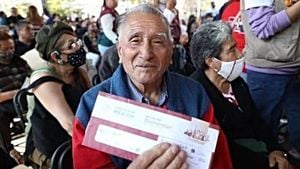Ahmedabad: As temperatures continue to rise in the city, the Amdavad Municipal Corporation (AMC) has launched its heat action plan, implementing various measures to provide relief to residents. This initiative, which began on April 9, 2025, includes the establishment of over 600 water kiosks across Ahmedabad in collaboration with non-governmental organizations (NGOs) and builders.
In a bid to combat the increasing heat, the AMC has also coordinated with traffic police to close around 70 traffic junctions during the hottest parts of the day. This decision aims to reduce the risk of heat-related incidents, particularly for those commuting during peak afternoon hours.
Municipal schools have adjusted their schedules to incorporate water breaks every one and a half hours, ensuring that students remain hydrated throughout the day. Special arrangements have been made at Shardaben, LG, SVP, and VS Hospitals, as well as Community Health Centres (CHCs), to treat heat-related patients effectively.
During a meeting chaired by Mayor Pratibha Jain, over 100 representatives from various organizations gathered to discuss the heat action plan. The mayor urged builders to conduct construction work in the early morning or evening to minimize exposure to high temperatures. She also called upon officials to collaborate with NGOs that are willing to support the public through initiatives like the water kiosks.
Each ward in the city is expected to establish about 25 water stations, supported by local NGOs and builders. Moreover, Oral Rehydration Solution (ORS) packets will be distributed free of charge to social institutions through Urban Health Centres (UHCs). Drinking water facilities have also been arranged at BRTS and AMTS depots to cater to the needs of commuters.
Additionally, the AMC has decided to set up 25 drinking water points in each ward as part of the heat action plan. This decision was made during a consultation meeting held on April 8, 2025. The water points will be established with the assistance of various voluntary organizations, emphasizing the community's role in tackling the heat crisis.
The AMC's heat action plan is a proactive measure aimed at minimizing heatstroke incidents and related fatalities in the city. By limiting the operation of traffic signals during the afternoon, the city administration hopes to reduce the number of individuals exposed to extreme heat conditions.
To further support residents, separate heatstroke treatment facilities have been ensured at AMC-run hospitals and urban health centres. The city administration will also arrange for ORS packets and other essential facilities at anganwadis, bus stands, and health centres, demonstrating a comprehensive approach to managing public health during the heatwave.
In addition to stationary water kiosks, the AMC has initiated mobile water stations in each zone, providing a flexible solution for residents in need of hydration. Drinking water facilities have also been established at all public gardens, ensuring that individuals can access water while enjoying outdoor spaces.
The heat action plan reflects the AMC's commitment to safeguarding the health and well-being of Ahmedabad's residents during extreme weather conditions. With temperatures expected to rise even further in the coming days, the timely implementation of this plan is essential.
As the city grapples with rising temperatures, the collective efforts of the AMC, NGOs, and community members will be crucial in mitigating the impact of the heatwave. The collaboration between various stakeholders highlights the importance of community engagement in addressing public health challenges.
In conclusion, the AMC's heat action plan is a vital response to the escalating heat crisis in Ahmedabad. Through the establishment of water kiosks, adjusted school schedules, and enhanced medical facilities, the city is taking significant steps to protect its residents from the dangers of extreme heat.




